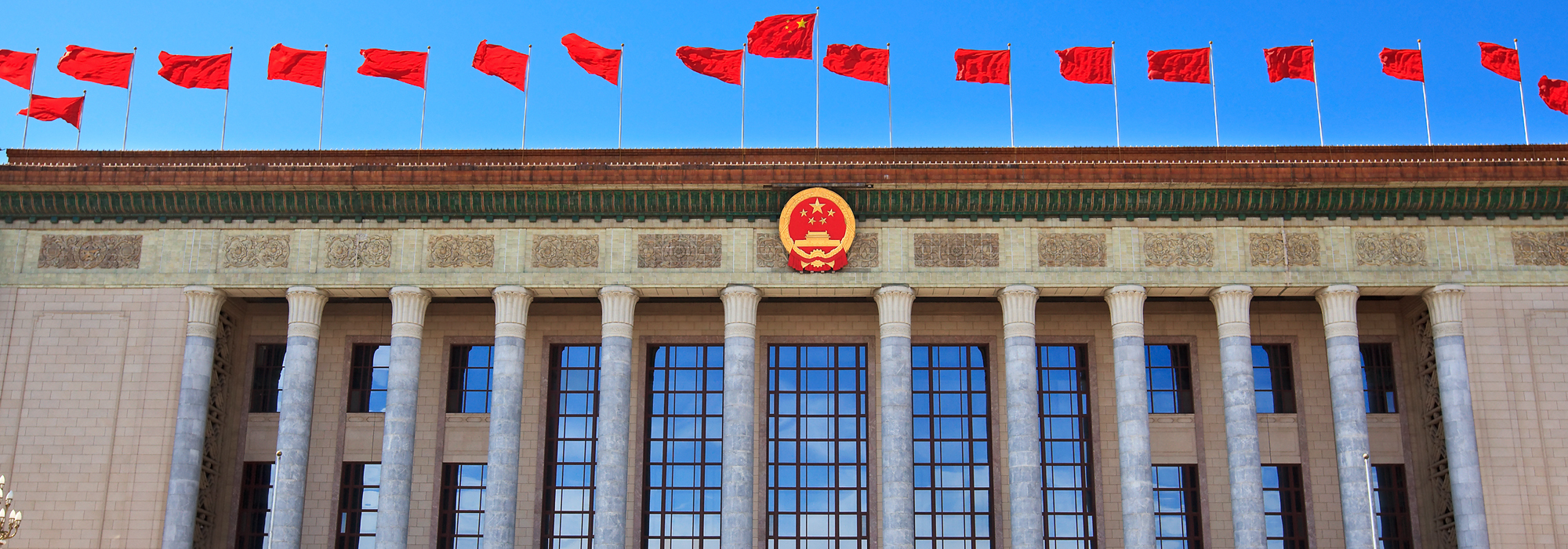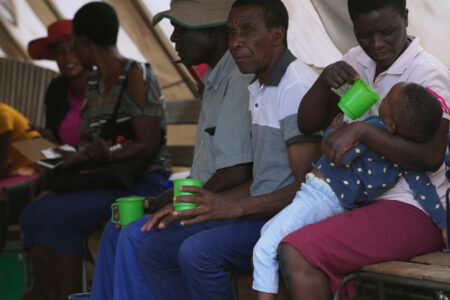
In order to safeguard global public health, the world must take action against the Government of China for its role in this global pandemic crisis. The Chinese Communist Party of China (CCP) and the Government of China, which the party directs, bear a large measure of responsibility for the global spread of COVID-19.
In the early days of the pandemic’s spread and during the Lunar New Year travel season, the Chinese government downplayed the severity of the illness and its spread. Human Rights Watch said in January that Chinese authorities had “detained people for ‘rumor-mongering,’ censored online discussions of the epidemic, curbed media reporting, and failed to ensure appropriate access to medical care for those with virus symptoms and others with medical needs.” Amnesty International warned soon after that the withholding of information was putting at risk the medical community’s ability to combat the virus.
There is authoritative and compelling evidence – including a study from the University of Southampton – that if interventions in China had been conducted three weeks earlier, transmission of COVID-19 could have been reduced by 95 per cent.
Meanwhile, an analysis of Chinese censorship around COVID-19, by the Munk School’s Citizen Lab, found that “Censorship of COVID-19 content started at early stages of the outbreak and continued to expand blocking a wide range of speech, from criticism of the government to officially sanctioned facts and information.”
The Chinese government’s wrongdoing and the suffering of its victims within its borders and internationally calls out for justice and accountability. There are clear and compelling legal remedies that should be considered to effectively address and redress this matter.
International
The International Court of Justice through a request for an advisory opinion from the United Nations General Assembly
The United Nations Charter provides that the UN General Assembly may request the International Court of Justice (ICJ) to give an advisory opinion on any legal question. Any UN member state can ask the General Assembly to make such a request to the ICJ, and China would not be able to veto such a resolution. The General Assembly could therefore request that the ICJ determine whether the actions of Xi Xinping’s China regarding coronavirus were in breach of its international legal obligations.
United Nations Human Rights Council
The United Nations Human Rights Council can pass a condemnatory resolution, or even establish a commission of inquiry into China’s actions regarding the coronavirus. If such initiatives are unlikely to muster the necessary majority of votes by member states of the council, independent statements can be made at the council’s regular sessions. Under agenda item 4 — “human rights situations that require the council’s attention” — any country, whether a member of the council or not, can deliver an oral statement. The wrongdoing of the Chinese government in the global spread of the coronavirus should be a matter of continuing concern at future sessions of the Human Rights Council.
The UN Special Rapporteur on the Right to Health
The UN Special Rapporteur on the Right to Health, currently Dr. Dainius Puras, can consider individual complaints, issue annual reports and conduct country visits. Accordingly, he should be asked to address China’s culpability in the spread of COVID-19.
There is a sense of urgency to such a prospective path towards accountability, as the current Special Rapporteur on the Right to Health will be replaced at the Council Session taking place between June 15th and July 3rd.
China was appointed in April to the Consultative Group of the Human Rights Council. The group advises the President of the council on the appointment of special rapporteurs and holds final approval over council appointments. It is therefore unlikely that the council, with a member of the Chinese Communist Party as part of its makeup, would appoint to any specialized mechanism a person who may be critical of the government of China.
The World Health Organization
The World Health Organization (WHO) was critical in 2003 of the Chinese Communist Party for its secrecy, dishonesty and cover-up concerning the Severe Acute Respiratory Syndrome (SARS) outbreak in Guangzhou, Guangdong of 2002. However, the behaviour of the WHO in the current pandemic is disappointing.
One might have hoped that the Chinese government has learned the lessons of its failures from the time of the SARS outbreak. Instead, of China reforming its policies and practices, it is the WHO that has altered its approach, failing to stand up to China.
The WHO has an important ongoing mandate and responsibility for our health and security which becomes particularly urgent in a time of a global pandemic, such as SARS in 2003 and now with COVID-19. Therefore, the WHO must be a particular focus of accountability efforts and encouraged to do the right thing, which is also the smart thing, for global public health and effectively confronting the Coronavirus.
International Health Regulations
The International Health Regulations were adopted in 2005 by the World Health Assembly of the WHO, to protect humanity from the international spread of disease. The unprecedented global impact of COVID-19 has demonstrated the ineffectiveness of these regulations.
In particular, there are no effective mechanisms when a state party violates regulations. All measures are subject to the approval of the violating state party, an unrealistic expectation when it comes to Xi Jinping’s China.
Yet, these regulations should not be rendered inoperative merely because of the necessity of agreement from Xi Xinping’s China to make them effective. An effort should be undertaken to render these regulations operable, and the very pursuit of this objective will underpin accountability efforts, promote a truthful narrative and mitigate Chinese propaganda.
International Court of Justice through the World Health Organization
The Constitution of the WHO provides that any dispute concerning the application of the constitution not settled by negotiation or by the World Health Assembly shall be referred to the International Court of Justice. A dispute regarding whether Xi Xinping’s China violated the International Health Regulations would likely constitute a dispute that could be referred by any WHO member state to the International Court of Justice.
The World Health Assembly
More broadly, the systemic challenges of the WHO must be addressed, and its next gathering from May 17 to 21 in Geneva presents such an opportunity. Ironically, the assembly may be unable to meet due to the failings of the WHO and the International Health Regulations in combatting the spread of COVID19.
In the World Health Assembly, as in the United Nations General Assembly, Xi Xinping’s China does not have a veto. This an opportunity for the international community to prioritize public health and pursue justice regarding the pandemic.
The Biological Weapons Convention
The Biological Weapons Convention obligates state parties, of which China is one, not to retain biological agents other than for peaceful purposes. A biological agent has been defined under the Convention to mean any organism which can cause death, disease or incapacity.
Repressing or misrepresenting information about the virus, detaining health practitioners who seek to sound the alarm, and arguing publicly against global travel restrictions, are forms of retention of the virus that have harmed global peace and security.
Any state party to the convention could therefore make a complaint to the U.N. Security Council. Given that the convention has 183 state parties, that includes nearly every country in the world. The UN Security Council, on receipt of a complaint of violation, must investigate the matter and produce a report.
National
Magnitsky laws
Magnitsky laws for global justice and accountability, named for murdered Russian whistle-blower Sergei Magnitsky, allows for the public listing of serious human rights violators – naming and shaming them – and subjecting them to visa bans and asset seizures, thus challenging the cultures of corruption and criminality, and the impunity that underpins them.
There are six countries with this law. None of them have targeted any rights violators in Xi Xinping’s China. More countries should enact such laws, and all those with Magnitsky legislation should consider implementing them to pursue justice and accountability for those responsible for perpetrating and perpetuating COVID-19.
Universal jurisdiction laws on crimes against humanity through prosecution
Many countries have laws which allow for the domestic prosecution of those who have committed crimes against humanity abroad. While these laws typically apply to permanent residents and citizens, some may also apply to visitors.
The accused would have to be found in the territory of the country in order for the local courts to have jurisdiction. While it varies by country – with some allowing for the private initiation of prosecutions – it is most often the exclusive decision of public prosecutors. Prosecutors are, however, usually reluctant to engage in such prosecutions, due to the prohibitive costs and evidentiary obstacles inherent in a case where the criminality and material evidence is abroad. Where private prosecutions are possible, they should be vigorously pursued.
There are other states, beyond China, that have contributed to the spread of COVID-19 through bad public policy and poor governance. Any liability response should be compelling and comprehensive, holding all wrongdoers to account. Yet, in doing so, the intentional and particularly intensive wrongdoing of China should be duly considered.
The denial, coverup and counter-factual narrative surrounding COVID-19 – underpinned by the use of global political pressure abroad and the repression of whistleblowers and medical heroes at home – has become standard operating procedure for the Communist Party of China. Immunity and impunity invite repetition.
In order to safeguard global public health, the world must act. Short-term political or economic considerations encouraging the indulgence of wrongdoing in Xi Jinping’s China come with a long-term cost. Preventing another pandemic and protecting humanity necessitates pursuing justice and accountability for the Communist Party’s actions.
This article is part of the The Coronavirus Pandemic: Canada’s Response special feature.












